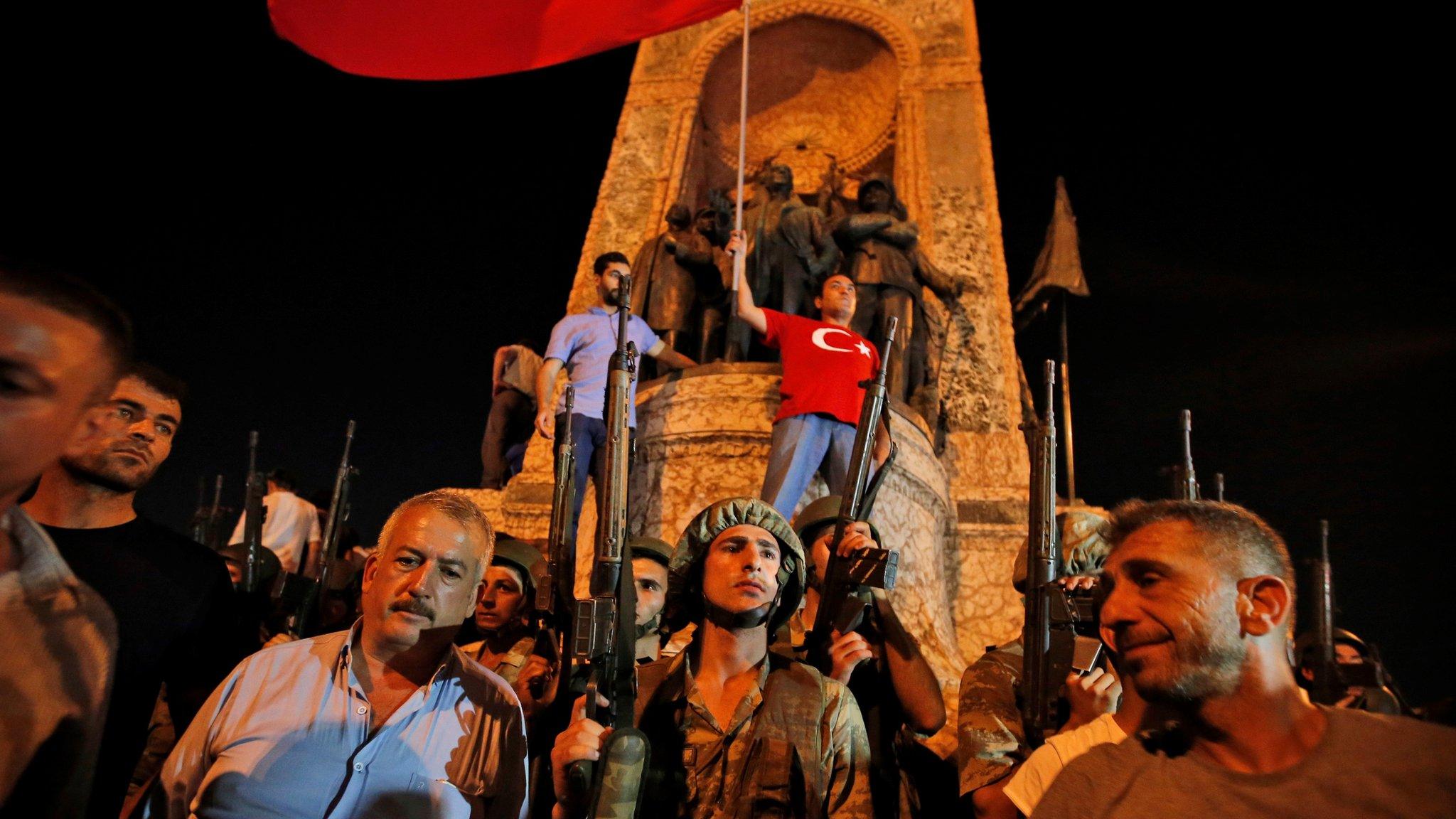Turkey coup: National security takes a blow
- Published
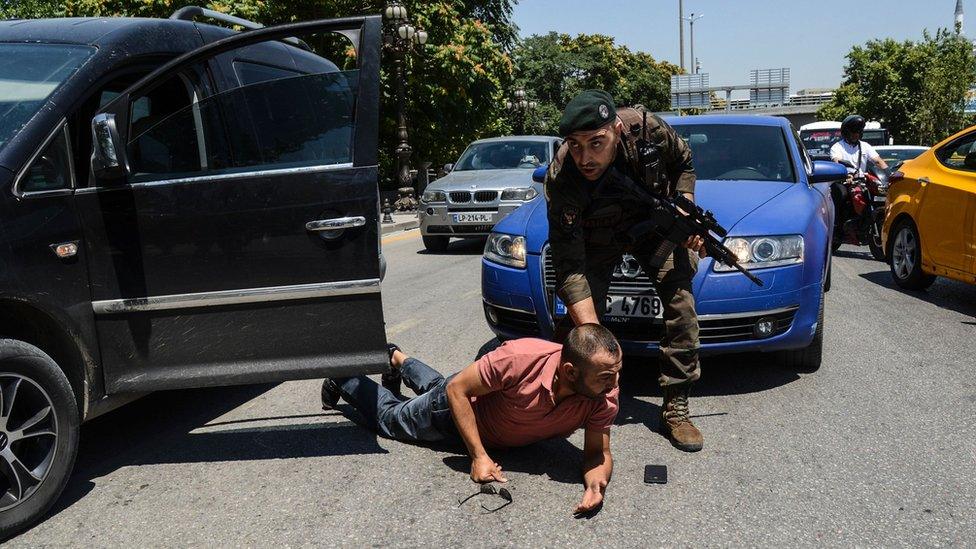
Thousands of police and soldiers have been detained in a purge in the aftermath of the failed coup
Turkey's armed forces have been dealt a significant psychological blow by the attempted coup, and their prestige and status have been damaged.
Turks had assumed that coups were a thing of the past.
Not only does this latest plot come as a threat to the country's democracy but it has also stymied its ability to act in its key role as a provider of regional security.
The forces' integrity will be hard to salvage and chronic problems in Turkey's civilian-military relations, which many thought had been recuperating in the past few years, will now be exacerbated instead.
Why did the coup in Turkey fail?
Public perception of the armed forces had already been hit in recent years by allegations of coup plots against the AKP government of Recep Tayyip Erdogan.
Importantly, those cases were eventually thrown out because of mostly fabricated evidence.
This attempted coup and the previous alleged plots have been blamed on Fetullah Gulen, a controversial US-based Islamic cleric, whose movement is suspected of infiltrating public and private ranks with the eventual aim of taking over the reins of the country.
Exiled cleric Fethullah Gulen condemned the coup attempt as treason
Crippled morale
Turkey's armed forces had already been trying to recover from the prosecution of high-ranking officers caught up in two cases that were eventually overturned. This botched coup has reversed this scenario.
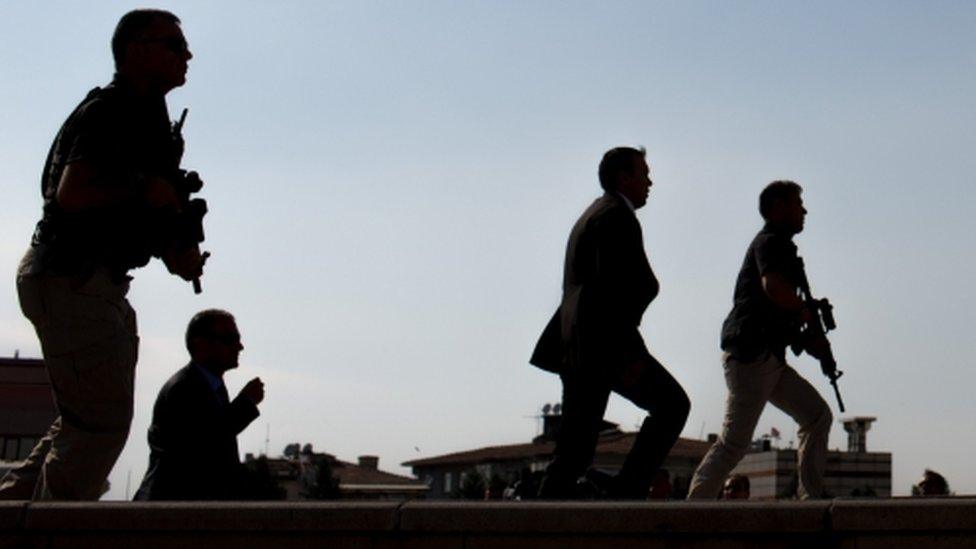
Turkish forces are facing a series of unprecedented threats
More than 100 generals have been detained for their involvement, amounting to nearly a third of Turkey's high-ranking officers.
Almost all major army units have lost at least one of their commanding officers.
Aside from the top brass, the purges have so far resulted in the arrest of more than 3,000 soldiers and some 7,500 police officers.
Whilst the purges are undoubtedly necessary in light of the acute threat posed by the conspirators, they will inevitably cripple the morale and capabilities of the Turkish forces, which are currently facing a series of unprecedented threats.
In addition to numerous one- and two-star generals, the alleged conspirators include Adem Huduti, who commanded the 2nd Army.
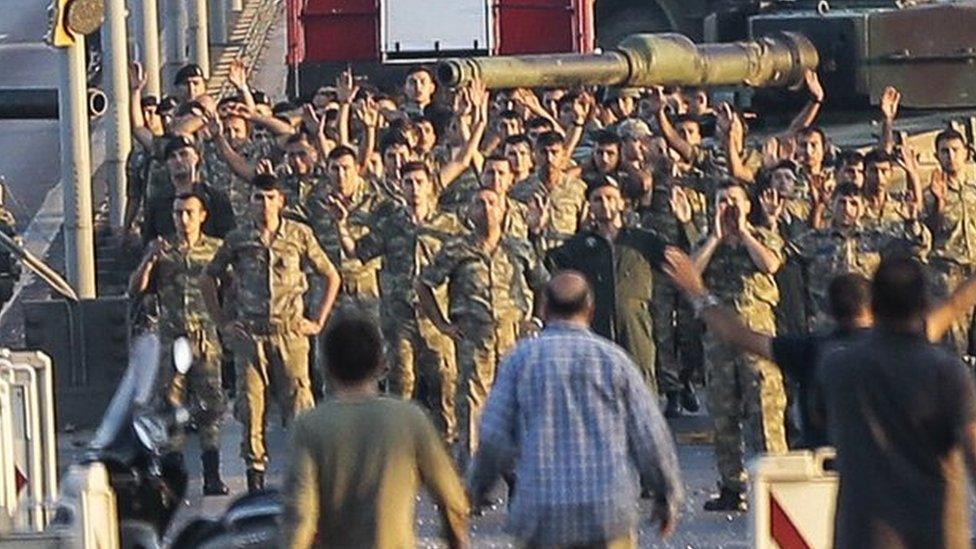
The purges will cripple the effectiveness of the armed forces for some time to come
The 2nd Army has the task of protecting the most perilous borders - with Syria, Iraq and Iran - and leads the fight against the Kurdish militant PKK in south-eastern Turkey. So the attempted coup may have a considerable impact on Turkey's ongoing fight against the PKK.
The failed putsch will also affect the combat against jihadist group Islamic State (IS).
IS has escalated its operations in Turkey substantially over the last year.
Both dismantling its networks within the country and preventing the transit of jihadists from Syria require close collaboration between the armed forces, police and national intelligence.
Yet by targeting the police and national intelligence headquarters and clashing with police forces throughout the night, the coup plotters have destroyed all mutual trust and confidence between the three pillars of Turkish security.
Furthermore, as long as the purges continue in both military and police ranks, neither side is likely to fully embrace the other as a trustworthy partner.
This will come as a major complication in Turkey's effectiveness in tackling IS.
This mistrust is also likely to characterise how the country's political leadership will view the armed forces, at least until it is confident that the conspirators have been weeded out.
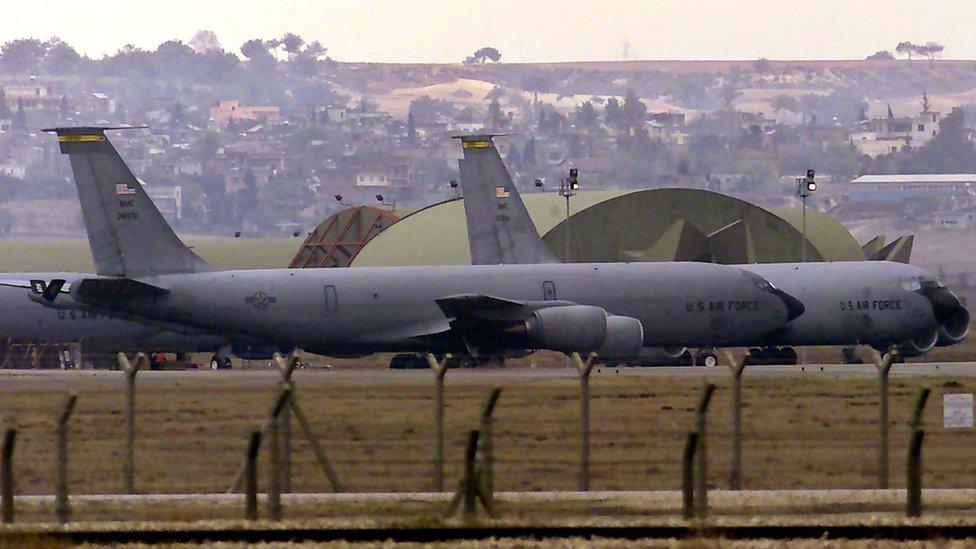
The US-led coalition fighting IS is based at Incirlik, and some Turkish pilots involved in the coup used the base
Nonetheless, the aftershocks of the plot will continue to plague civilian-military relations for the foreseeable future.
Nato fears
What is more, Turkey's ability to contribute to Nato is likely to be reduced visibly, as both an effective deterrence posture and force projection rely strongly on the cohesion between the political and military elites over the strategic objectives of the country,
The coup attempt may also push the leadership into rethinking the country's involvement in the anti-IS coalition, given that a number of fighter planes that took part used Incirlik airbase. The base also hosts foreign aircraft belonging to the anti-IS coalition.
Though it failed to unseat Turkey's elected government, the 15 July coup plot succeeded in hampering Turkey's ability to protect itself and to act as a security provider in a volatile region that will continue to present complex security challenges for Nato.
It is not only for Turkey's sake but for Nato's too that the Transatlantic Alliance will need to stand by Turkey at this difficult time.
Doruk Ergun is a research fellow at the Centre for Economics and Foreign Policy Studies (EDAM) in Istanbul.
- Published19 July 2016
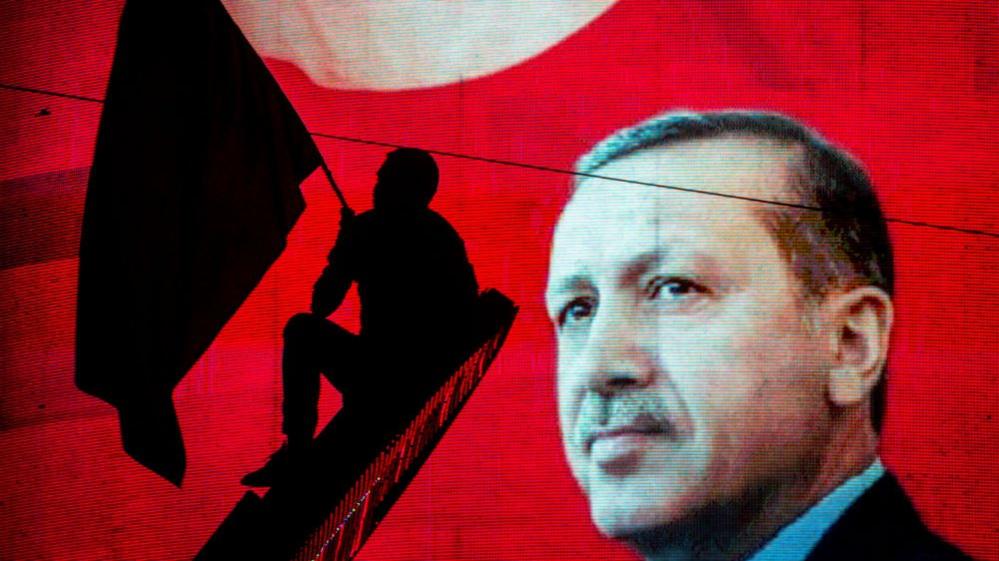
- Published18 July 2016
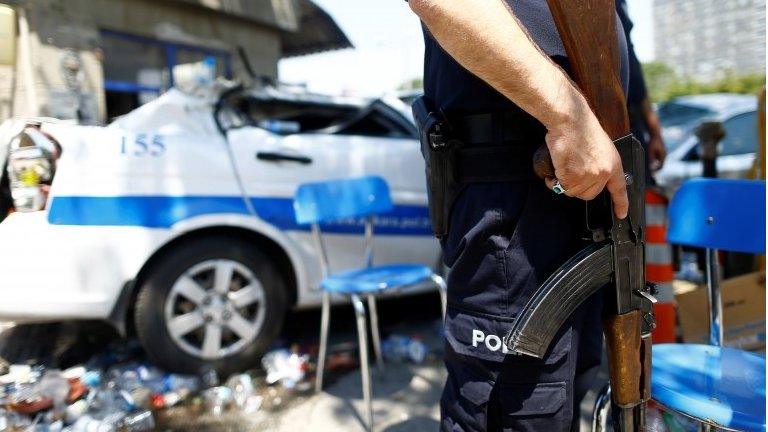
- Published18 July 2016
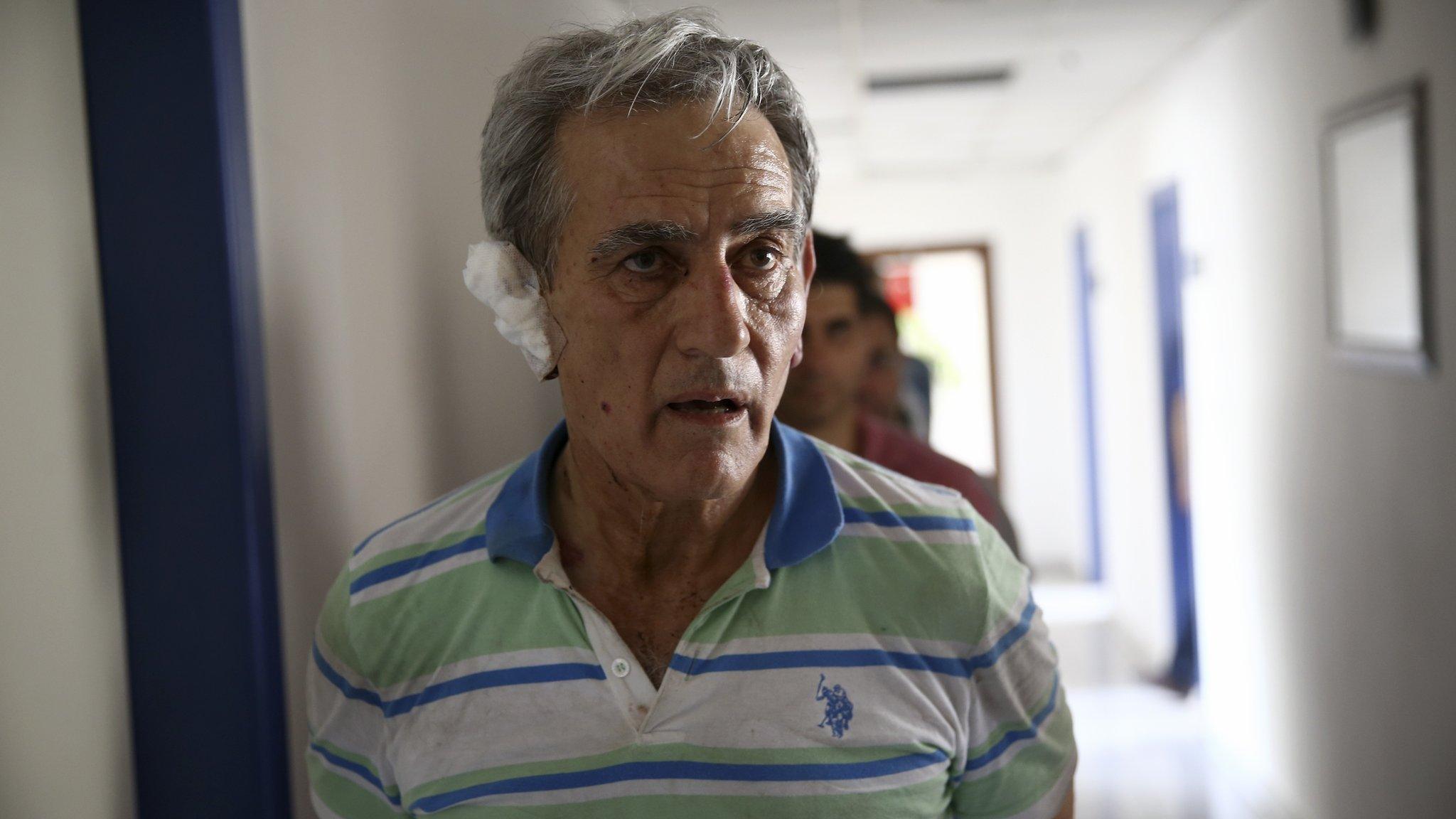
- Published24 March
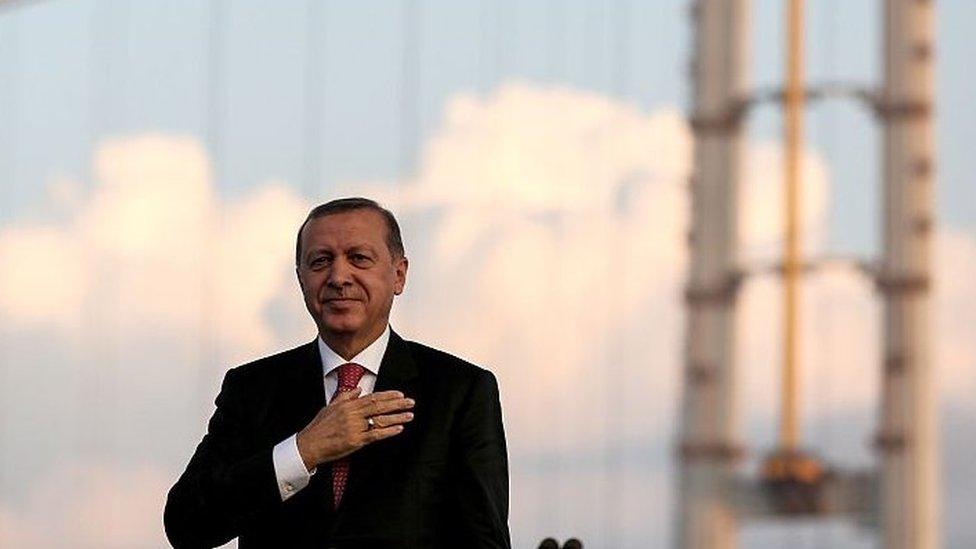
- Published17 July 2016
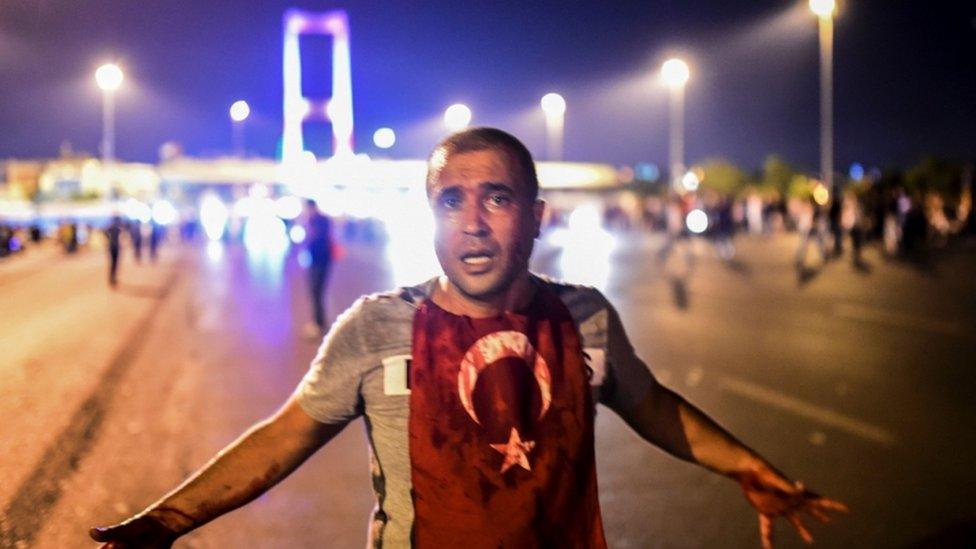
- Published16 July 2016
